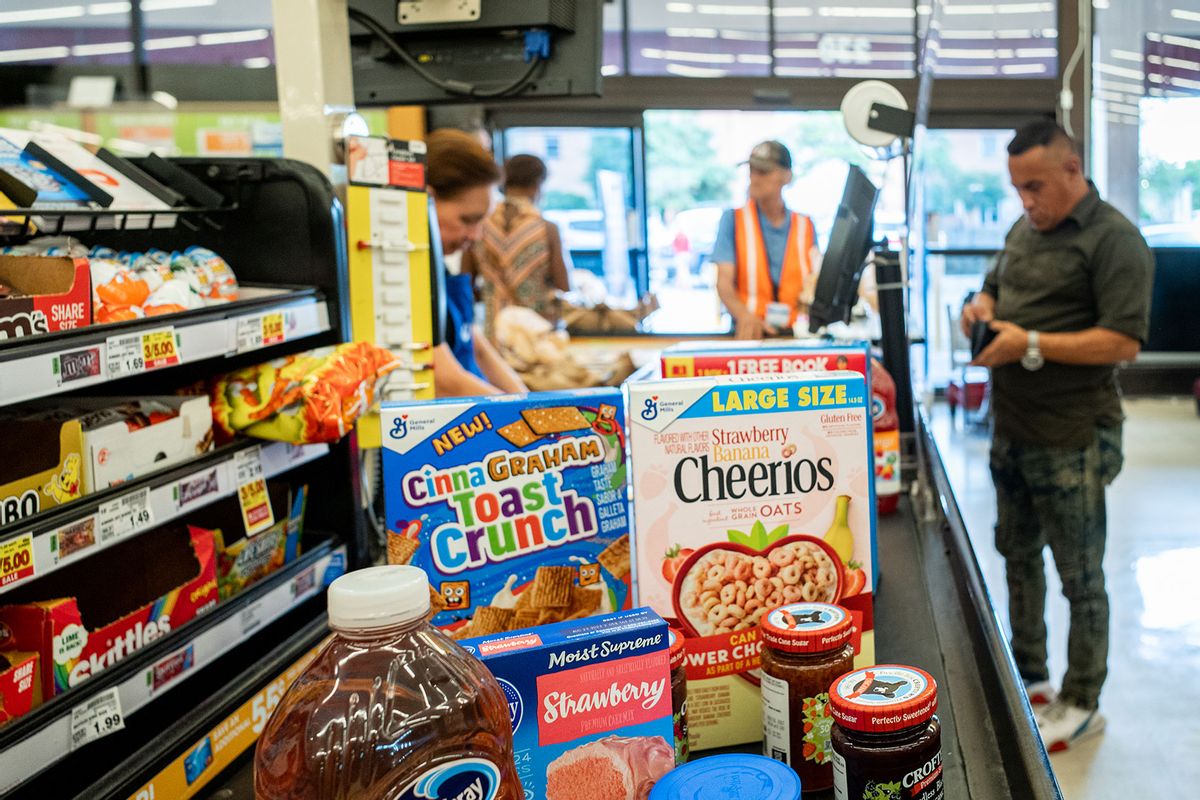Since first announcing plans to merge in Oct. 2022, leadership from Kroger and Albertsons, two of the largest supermarket chains in the country, have maintained the deal is necessary in order to compete with the increasingly monopolistic companies, like Amazon and Walmart, that have pushed their way into the grocery business in recent years. It’s a claim that’s been met with significant skepticism from some state-level and federal legislators and analysts who predict the merger would simply result in higher grocery prices.
“This supermarket mega-merger comes as American consumers have seen the cost of groceries rise steadily over the past few years,” said Henry Liu, director of the Federal Trade Commission's Bureau of Competition, in February. “Kroger’s acquisition of Albertsons would lead to additional grocery price hikes for everyday goods, further exacerbating the financial strain consumers across the country face today.”
To push back against that narrative, Kroger had previously promised to lower grocery prices by $500 million if the merger gained regulatory approval — a number the company has now increased to $1 billion, likely in an effort to push the deal through.
In an emailed statement to The Dallas Morning News, a Kroger spokesperson said that since announcing the planned merger nearly two years ago, the company has continued its work “to confirm and increase opportunities to generate efficiencies to invest back in customer prices, associate wages and store experience.”
“After the merger closes, Kroger will invest $1 billion to lower Albertsons’ prices, consistent with Kroger’s track record of fighting inflation and providing value to customers,” the statement continued.
This announcement from Kroger comes at a tense moment, as two United States senators have called for more transparency from the company regarding its use of electronic shelf labels —which they allege allow stores to “extract maximum profits” — and as the supermarkets and the Federal Trade Commission go to court next week to determine whether the merger will go through.
We need your help to stay independent
On Aug. 5, Sens. Elizabeth Warren and Robert P. Casey, Jr. wrote a letter to Kroger Chairman and CEO Rodney McMullen to “request further information to better understand the justification for and risks of electronic shelving.” In 2019, Kroger launched a partnership with Microsoft to develop several new digital tools for their stores, including electronic shelving that would use “digital displays, instead of traditional paper tags, to indicate everything from prices and promotions to nutritional and dietary information,” according to an archived press release from Microsoft.
However, Warren and Casey indicate in their letter concerns over whether or not these digital displays — called an EDGE, or “Enhanced Display for Grocery Environment,” Shelf —could be used to unfairly calibrate higher prices for more in-demand items. Citing a report from Marketplace, the senators wrote:
Widespread adoption of digital price tags appears poised to enable large grocery stores to squeeze consumers to increase profits. Analysts have indicated that the widespread use of dynamic pricing will result in groceries and other consumer goods being “priced like airline tickets,” “creat[ing] a sense of urgency and a sense of scarcity that wouldn’t exist if there were just publicly posted prices that everybody understood,” and allowing “sellers…to … figure out ways to extract the maximum amount of profit from each customer.”
The senators also requested answers to 11 specific questions, including:
- For all items that have been subject to dynamic pricing using EDGE, what is the average percentage change in price of those items over the first six months of using the system?
- Has Kroger ever used EDGE to change the price of an item more than one time within the same day?
- And how will Kroger ensure that it will not use customer data related to ESL platforms to discriminate based on protected classes, such as race, gender or age, when offering personalized prices?
In a statement to Grocery Dive, a publication that focuses specifically on the industry, a spokesperson for Kroger wrote: “Any test of electronic shelf tags is to lower prices more for customers where it matters most. To suggest otherwise is not true.”
Warren and Casey have requested a response to their questions from Kroger by Aug. 20, six days before the company, along with representatives from Albertsons, is due to appear in court in Portland to argue against the FTC’s federal lawsuit that aims to prevent the merger. Nine attorneys general — from Arizona, California, Illinois, Maryland, Nevada, New Mexico, Oregon, Wyoming and Washington, D.C. — have joined the complaint.



Shares